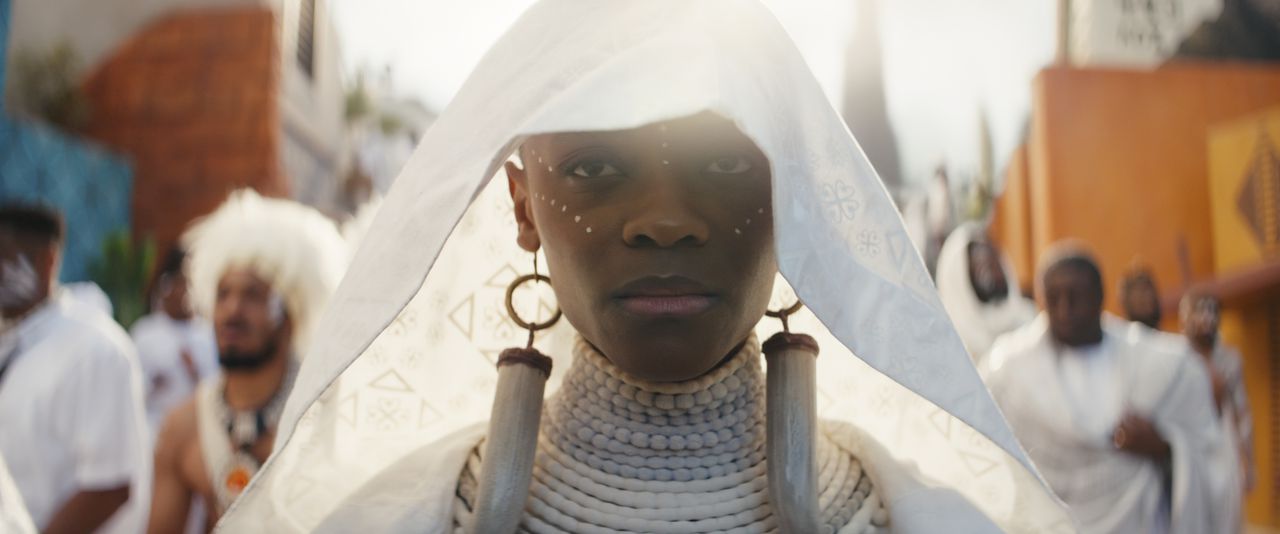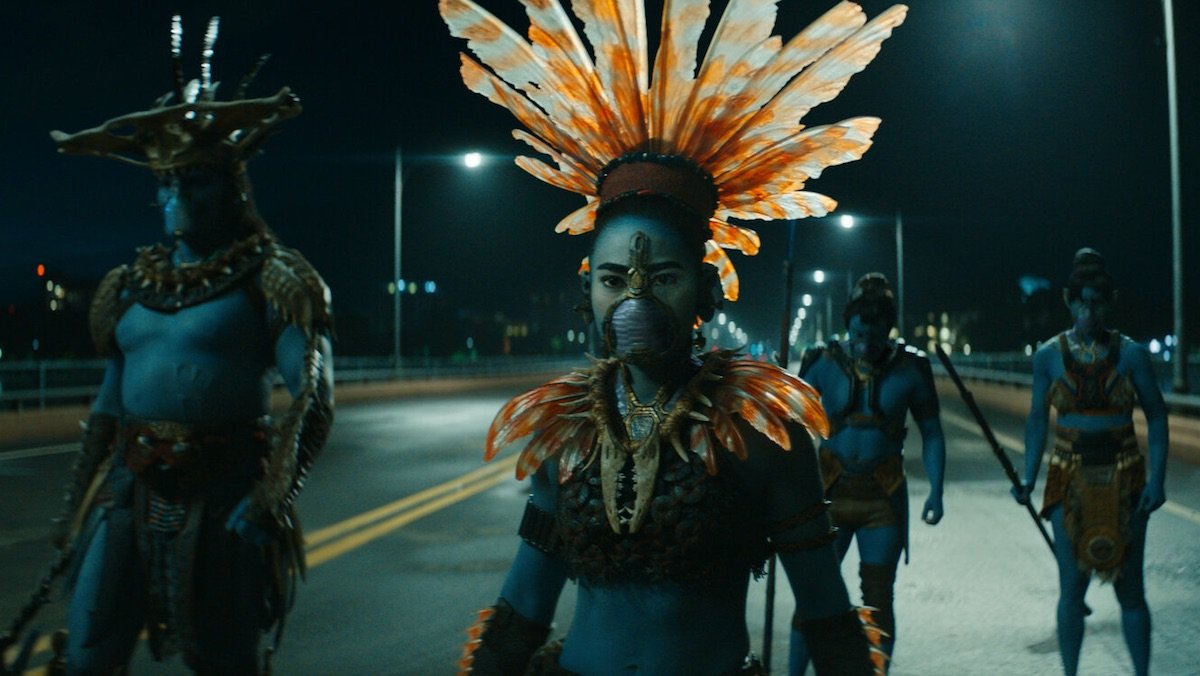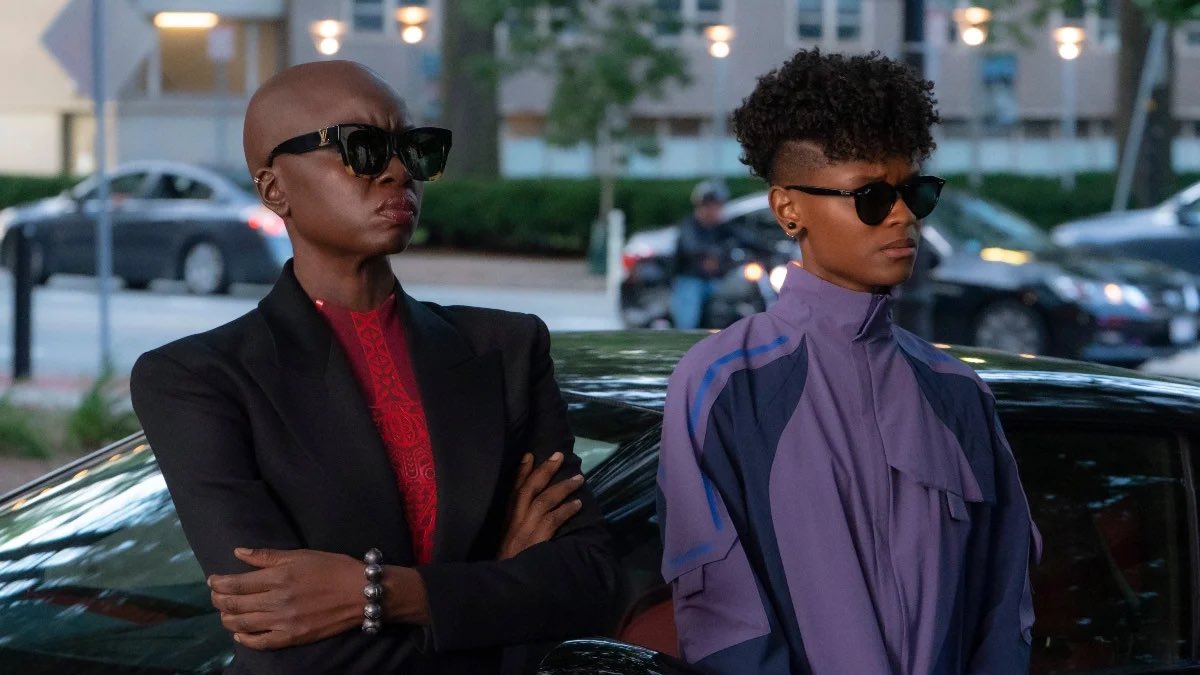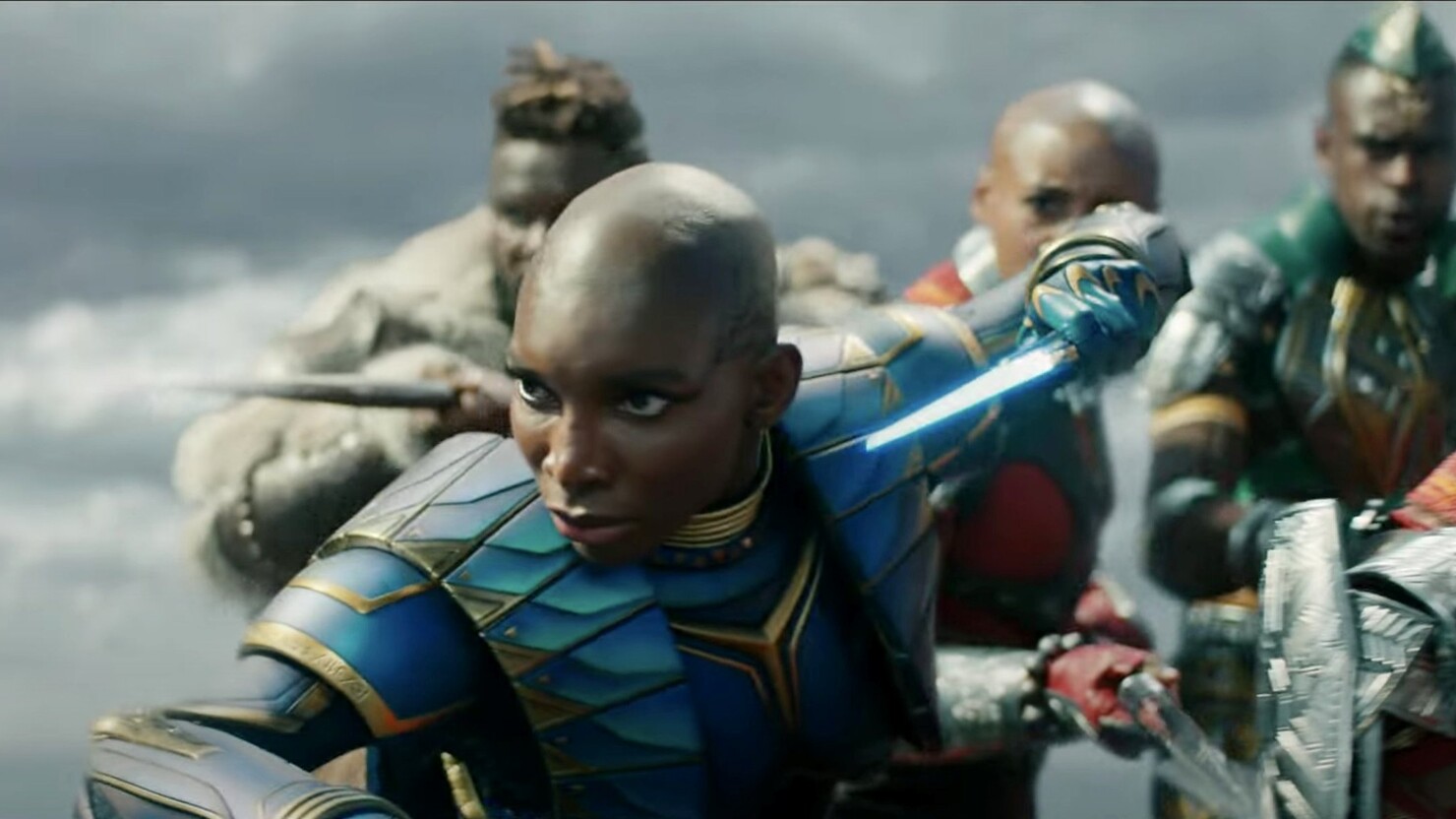When Chadwick Boseman lost his battle with cancer in 2020, the casual fan might have assumed Disney and Marvel would scrap their planned Black Panther sequel. This same casual fan might also assume cynicism was at play when they didn’t, when they wanted one more grab into the deep bag of cash that the original Black Panther revealed.
A veteran MCU fan, though, recognises that continuing this franchise is about the most MCU Stage Four thing they could have possibly done. Stage Four has been characterised by switching which people are inside which costumes (Captain America), even in some cases if the original person is still around (Thor). And it’s especially fitting for the specific mythology of Black Panther, where T’Challa was not the first person in his family to wear the suit, so it’s only natural he should not be the last.
Black Panther: Wakanda Forever celebrates Boseman and T’Challa without being beholden to them, mourns them without tipping over into excess sentimentality. T’Challa’s majestic funeral sequence encompasses the minutes prior to the Marvel banner, which replaces images of all our MCU heroes with only those of T’Challa, in a tribute devoid of musical score. It’s a stirring combination of choices that leaves no doubt as to the feelings of reverence this actor inspired in anyone who collaborated with him. And then the movie moves on, not failing to mention T’Challa again of course, but leaving its references sprinkled throughout the running time so the new movie has a chance to rise and blossom on its own. If the casual fan thought T’Challa would be present in one way or another in every frame of this film, again he or she got it wrong.
What unfolds instead is a 161-minute movie that never suffers from pacing problems, but instead confirms and amplifies director Ryan Coogler’s abilities with scope and scale. While Black Panther: Wakanda Forever operates totally within the parameters of magnitude of every other MCU movie, it exceeds most of them in envisioning where to stage its giant battle scenes, against what sort of villains, with what sort of stakes. “Vision” is the key part of the word “envisioning,” as there’s no doubt Coogler has it and then some.
A year has passed since T’Challa’s death, and the world considers Wakanda ripe for the picking. Ramonda (Angela Bassett) is still the queen mother, and as a demonstration of the Wakandans’ intention to blend vigilance and mercy, she has a team of French mercenaries led into a session at the United Nations – mercenaries who were captured in their siege of a Wakandan outpost in Mali, where the all-powerful Wakandan element vibranium was the prize they were trying to procure. These mercenaries will be turned over to the government that sent them, but the next attempted incursion will not be answered so lightly.
Immediately providing a contrast to the Wakandans’ methods are the Talokans, a previously unknown kingdom of underwater dwellers with a blue tint to their skin. They too stop an American team from searching out vibranium on the ocean floor. It turns out Wakanda is not the only place on Earth where one can obtain vibranium, but the other was never known because it was at unfathomable depths, and there was no way to detect it. Until, that is, a brilliant student at the Massachusetts Institute of Technology (Dominique Thorne) invented a machine capable of that – a machine that could potentially put vibranium in the hands of even the most warlike nations. The Talokans, led by Namor (Tenoch Huerta Mejia), are philosophically aligned with the Wakandans in their desire to prevent that outcome, but they do it by killing everyone aboard the American vessel, then trying to find and kill the young engineer so she doesn’t make another.
Standing in the way of this last mission is Princess Shuri (Letitia Wright), T’Challa’s younger sister, and Okoye (Danai Gurira), a senior general in the Wakandan army. They’ll eventually enlist the support of other Wakandans, such as leader of the mountain tribe M’Baku (Winston Duke), and other Americans, such as CIA agent Everett Ross (Martin Freeman). It’ll be no easy task against the Talokans, who have their own vibranium and have used it in ways the Wakandans never imagined, and specifically against Namor, a Talokan with superhuman strength, and even wings on his ankles that let him fly.
If Wakanda Forever is an example of expanding the scope of a sequel in a positive way rather in just making things more busy, one of the ways it does that is socio-political. The Talokans are Mayan in their ethnic origins, driven into the sea centuries earlier when the Spanish began enslaving their part of the world. That gives them a shared cultural heritage with Africans and indicates that they are unlikely to be a Thanos-style antagonist, to be destroyed at all costs. Coogler manages the nuance of this expertly.
Neither does the film stray from its sense of fun in making these larger points about colonialism and war mongering. Coogler has proven himself an adroit director of action sequences, and gives us three pretty big ones here, each of which feels distinct and fresh in its own way. Two of them involve enough water that you’d think it was James Cameron making this movie rather than Ryan Coogler. (And the fact that the Talokans look a bit like Na’avi should prepare people for Cameron’s Avatar sequel next month.) Coogler first showcased his abilities shooting fisticuffs in Creed, and his two Black Panther movies have furthered those skills while also employing them in unique, memorable ways.
Part of this fun is watching the relationships continue to grow. Shuri and Okoye have great comic chemistry during their trip to Boston to kidnap the engineering student for her own protection, and Thorne as that student adds the requisite American x factor that Michael B. Jordan’s Killmonger contributed in the original. Winston Duke’s rival tribe leader continues to add spice as a character who alternately provides support and causes internal strife, and there will even be some returning characters who were thought to have been written out of the proceedings, to give the whole thing extra dimension.
Perhaps the most welcome aspect of Wakanda Forever is that if it’s no more beholden to the MCU than it is to T’Challa. Spoiler alert, I suppose, but don’t expect the Incredible Hulk to show up in the middle of the climactic battle. And for once you don’t need to wait around until the very end of the credits – 161 minutes of your time is probably enough – as the only extra material here is a very early mid-credits sequence.
Part of the reason Black Panther landed so favourably with fans was that Coogler took what he needed from Marvel and left the rest in Kevin Feige’s office. Coming at a time when Easter eggs and fan service are far more shameless than they were four years ago, the sequel might be even better at doing that. T’Challa would approve.
Black Panther: Wakanda Forever is currently playing in cinemas.




